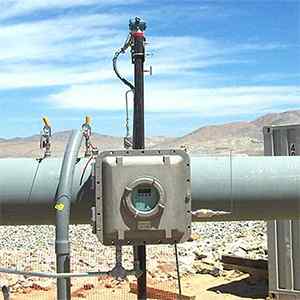Future of Big Data in Automation Industry

With the quick changing business environment and innovations in technology, manufacturers are investing in automation of manufacturing operations. Also, the manufacturers are focusing on increasing productivity and reducing the costs by setting up advanced technologies such as big data, Internet of Things (IoT), artificial intelligence, among others. Big data technology is sustaining the manufacturing industry to advance production processes, and help to get data from different devices to improve production, automated operational workflow, quality, and diminish maintenance costs.
Big data analytics software assists with keeping up work processes, analyze work patterns, improve the nature of the cycles, production, etc. The big data solutions analyze, collect, and monitor an enormous volume of unstructured and structured data generated from original sources such as product quality, production unit, factory floor. Big data technology helps to unveil novel trends and patterns and provides actionable insights to businesses. Besides, big data is becoming one of the most vital elements in the manufacturing industry, as it's playing a major role in the fourth generation of enterprise resource planning (ERP) systems. ERP technology is sustaining to change outdated manufacturing facilities into highly automated and efficient powerhouses. The big data technology would create a new era for manufacturing as it holds the ability to engage the process, data, and people. The rising technological advancements are expected to predict well for the big data in manufacturing industry.
The information is being gathered from the customary maintenance survey-based process or with the guide of complex innovation devices like sensors, RFID, and so on in the manufacturing business. This collected data helps to track resources and evaluate the generated data through sensors and other devices. Manufacturers can track and scrutinize risk quality, production process, and other parameters of the operations with the help of big data. Also, big data is helping the manufacturing industry to get full automation of the operations. With the expansion of IoT and advancement in connectivity technologies, big data is providing an opportunity for a new sort of intelligent manufacturing technology.
| Also Read: Leveraging Big Data and Analytics in Automated Manufacturing |
Big data in manufacturing industry will help to reduce waste and energy costs can increase accuracy and yield, improve quality assurance, and speed up assembly. Let's take a deeper dive into what's ahead in Big data for the coming years.
Cloud Data Will Shape Customer Experiences
When people think about big data trends, cloud computing is a vital topic of discussion. When users merge big data with cloud computing to enhance customer experiences, more and more brand interactions are happening through digital services. So, it's necessary that companies advance updates and deliver novel products and services faster than they ever have before.
Augmented Analytics Will Speed Decision-Making
Augmented analytics will shape up the big data for future trends. This includes applying expertise on big data platforms such as artificial intelligence (AI), machine learning, and natural language processing. This would help organizations make faster decisions and detect trends more efficiently.
Chief Data Officers (CDOs) to be in Limelight
Although the need for data scientists and chief data officers (CDOs) at work is now greater, the places of these authorities are moderately new. With the amount of data increase, data professionals need also reach a certain threshold of business requirements. The CDO is a C-level official who handles integrity, information access, and security in an organization. As more and more entrepreneurs recognize the importance of this job, a CDO's recruitment will change to standard. The requirement for these experts will remain in the big data trends for a long time. A rising number of organizations will expect them on the groundbreaking of information adaptation. They can also play a crucial role in connecting corporate information resources with line-of-business customers as a notable outcome for deeply noticeable situations to CDOs.
IoT & Big Data: Synced Future
A lot of innovations intend to transform the present business scenarios in 2021. IoT and digital devices require accomplishing big data trends in 2021. In healthcare, the role of IoT can still be seen today. Similarly, a technology combining with Big data is progressing organizations to get better results. A more advanced depiction of a physical system or framework is the digital twins. The business application and framework pioneers can use these frameworks to reduce complexity within their IoT production. They can run many simulation processes before real-time gadgets are built. The trends on big data analytics are expanding as imperative aspects of breaking down IoT-based data gathered from "connected devices" to improve dynamics. In IoT, the function of big data is to continuously process multiple information and keep it away for use with certain storage technologies.
Cloud Technology Will Make Big Data More Accessible
One of the major advantage of cloud computing is that it lets people to access applications from anywhere. For the next 20 years, big data analytics will probably be more persistent throughout the business that it'll no longer be the domain of specialists. Each manager, and several nonmangerial employees, will be assumed to be capable in working with big data, just as most knowledge workers today are supposed to know PowerPoint and spreadsheets. A study of large datasets will be a requirement of almost every business decision, much as a simple cost/benefit analysis is today.
Metadata System will be Smarter
The organized information that comprises data about the properties of other details is metadata. This permits huge data measures to be restricted, mixed, captured, and also handled in the distribution and across several data stocks. As the entire process is secure, data is increasingly available and can likewise be used for future undertakings. This is one of the upcoming big data trends that leads to automated metadata processing. They'll be gradually designed with AI to allow versatile, dynamic, and fast data systems.
Conclusion
There'll be a lot of regulation and monitoring of data usage in the public and private sectors. Big data will continue to grow depending on the market projections. This will affect the way companies and organizations look at business information. The companies should be eager on strengthening their efforts to adjust their business operations.











